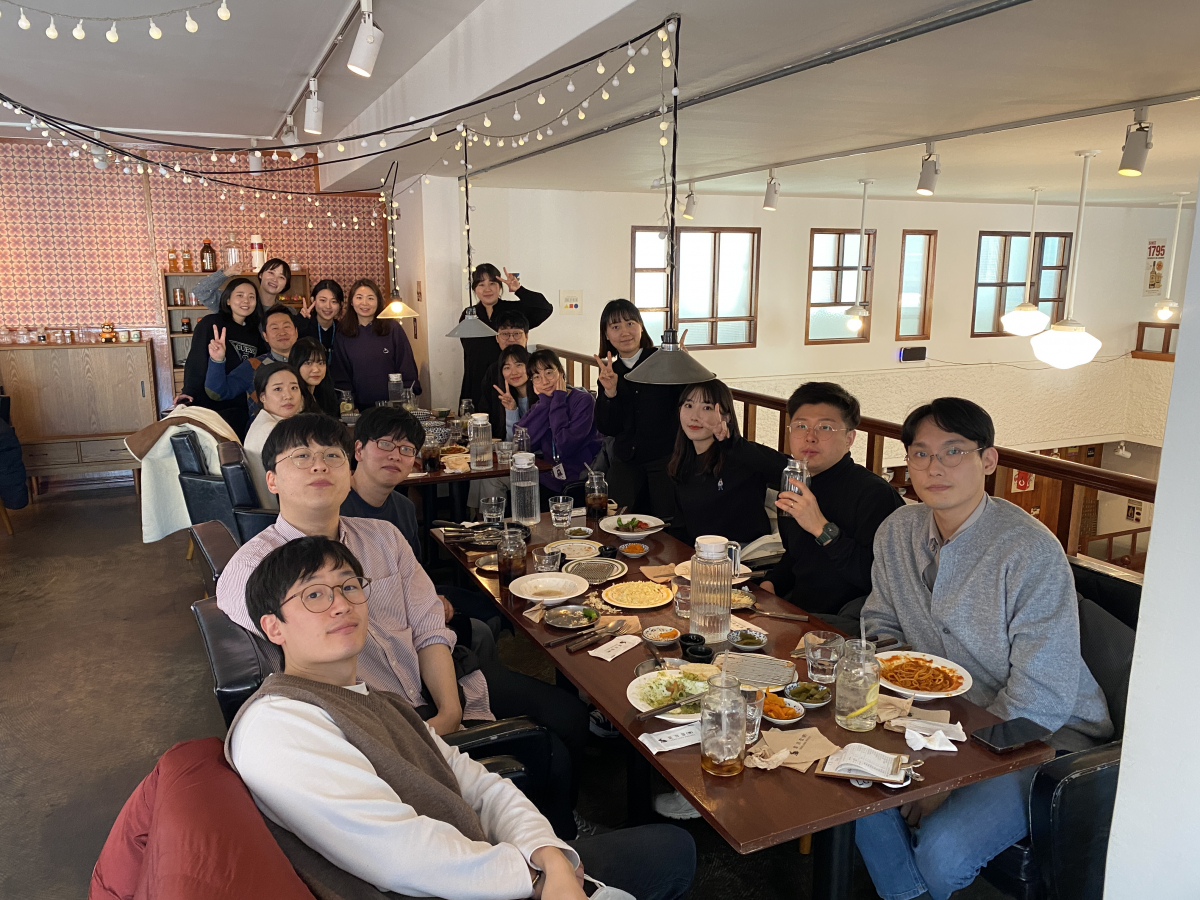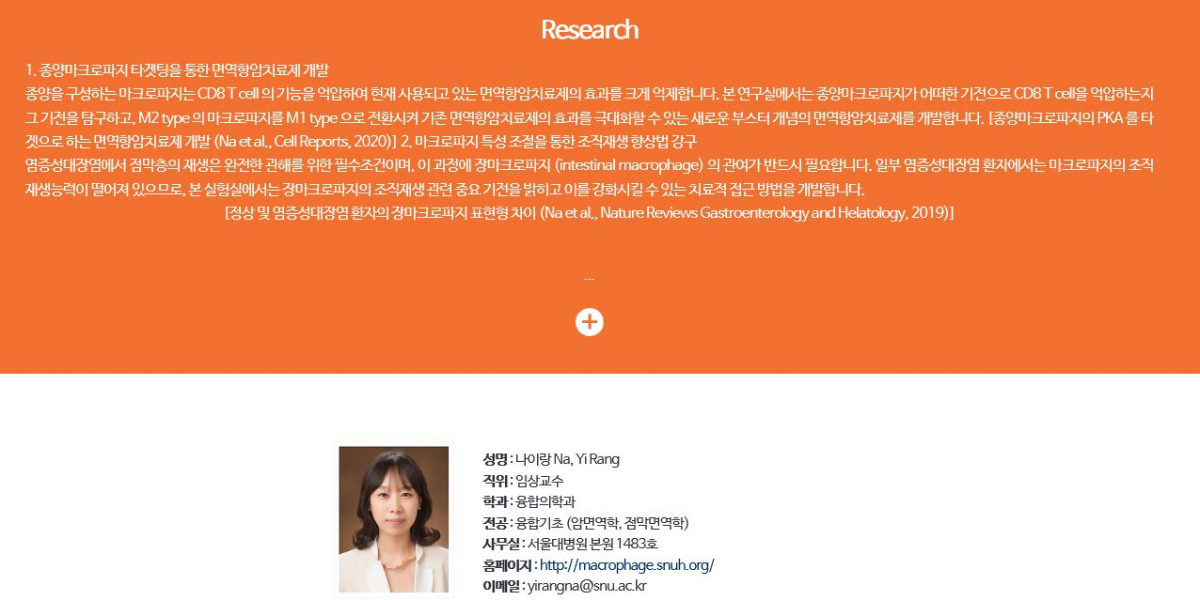
Overview
Laboratory Introduction
Macrophage Laboratory
Macrophage Laboratory
Related Researcher

Seung Hyeok Seok Professor
- Email : lamseok@snu.ac.kr
Research topics
Research goals
Research achievements
1) Circulation Time-Optimized Albumin Nano platform for Quantitative Visualization of Lung Metastasis via Targeting of Macrophages. Chung H, Park JY, Kim K, Yoo RJ, Suh M, Gu GJ, Kim JS, Choi TH, Byun JW, Ju YW, Han W, Ryu HS, Chung G, Hwang DW, Kim Y, Kang HR, Na YR, Choi H, Im HJ, Lee YS, *, Seok SH*. ACS Nano. (IF 18.027).
2) Prostaglandin E2 Receptor PTGER4-expressing macrophages promote intestinal epithelial barrier regeneration upon inflammation. Na YR, Jung D, Stakenborg M, Jang H, Gu GJ, Jeong MR, Suh SY, Kim HJ, Kwon YH, Sung TS, Ryoo SB, Park KJ, Im JP, Lee YS, Han H, Park B, Lee S, Kim D, Lee HS, Cleynen I, Matteoli G*, Seok SH*. Gut. 2021. (IF 23.059).
3) Macrophages-triggered sequential remodeling of endothelium-interstitial matrix to form pre-metastatic niche in microfluidic tumor microenvironment. Kim H, Chung H, Kim J, Choi DH, ShinY, KangYG, KimBM, SeoSU, Chung S*, Seok SH*. Advanced Science. 2019. (IF 16.806).
4) Macrophages in intestinal inflammation and resolution: a potential therapeutic target in IBD. Na YR, Stakenborg M, Seok SH*,MatteoliG*. Nature Reviews Gastroenterology & Hepatology.2019 (IF 46.802).
5) Protein Kinase A Catalytic Subunit Is a Molecular Switch that Promotes the Pro-tumoral Function of Macrophages. Na YR, Kwon JW, Kim DY, Chung H, Song J, Jung D, Quan H, Kim D, Kim JS, Ju YW, Han W, Ryu HS, Lee YS, Hong JJ, Seok SH. Cell Rep. 2020. (IF 9.423).



